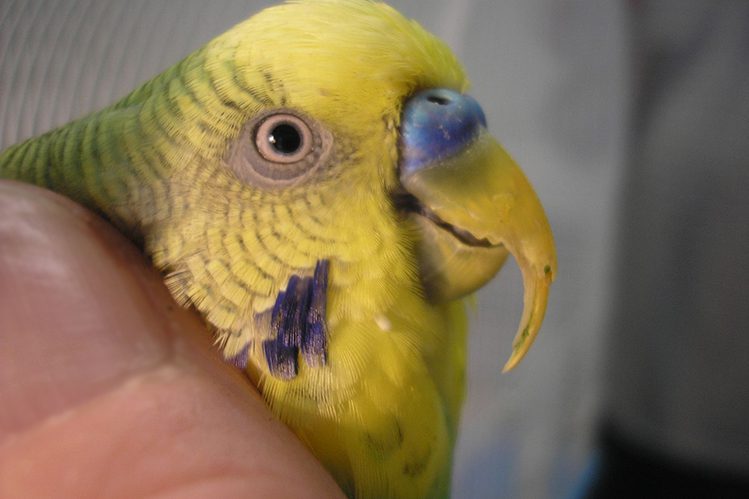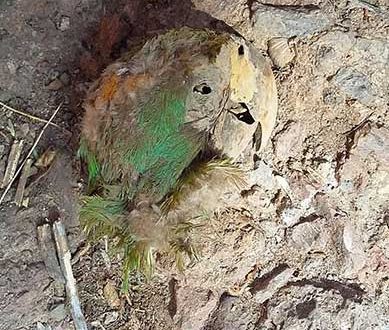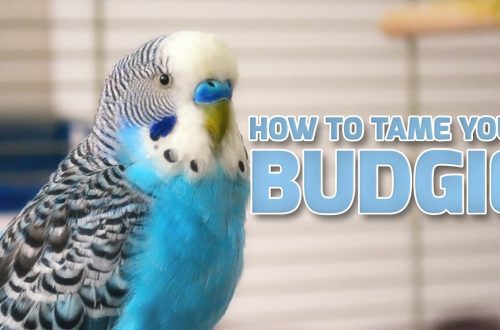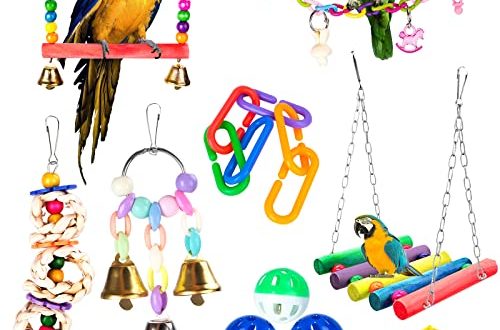
Beak disease in parrots
What beak problems do parrots have? What causes them to appear and what are the consequences? Can we save a pet from possible problems and how to do it?
Thanks to the beak, birds breathe, eat, clean their plumage, make nests, feed their offspring, move through trees and even defend themselves from enemies. It is not surprising that the quality of life of a bird depends on the condition of the beak. Unfortunately, unfavorable conditions of detention, unbalanced nutrition and injuries provoke various diseases of this organ, which are fraught with serious consequences, which is often found in domestic parrots. We will analyze what kind of problems can arise with the beak and for what reasons. Is there a way to prevent them?
- Flaking and softening of the beak
If you notice that the parrot’s beak has begun to exfoliate or has lost its hardness, most likely we are talking about an unbalanced diet and, as a result, a lack of vitamins and minerals in the body. In this case, it is necessary to seriously revise the pet’s diet.
It is best to purchase ready-made high-quality complete foods for your parrot (for example, Fiory parrot food), as their composition is carefully balanced. So, along with the food, the parrot receives every day all the nutrients necessary for good health. While feeding with natural products often causes a lack of vitamins and minerals. It is very difficult to balance the diet of a bird on your own at home, so if you feed your pet with natural food, he will also need an additional vitamin and mineral complex. Consult your veterinarian (ornithologist) on this matter. In the case of delamination or softening of the beak due to a lack of vitamins, the problem is quite simply solved by adjusting the diet.
In more rare cases, fungal, bacterial and viral diseases can be the cause of the problem. Only an ornithologist can diagnose and prescribe treatment. Do not try to treat the pet yourself, this can lead to serious complications!
The best prevention against delamination and softening of the beak are favorable conditions for keeping a parrot and a high-quality balanced diet. To prevent beriberi, introduce liquid vitamin supplements (for example, Fiory Extra Vigor) into the pet’s diet, which are indispensable in cases where the bird’s body is weakened. For example, during the period of feeding offspring, stress, after illnesses, during the wintering period, etc.
- beak growth
In their natural habitat, birds grind their beaks on branches and tough food, and pet parrots should also have this opportunity. To prevent beak growth, feed your pet properly, and also install a mineral stone in his cage (for example, Versele-Laga, Fiory).
Do not forget that the overgrown beak not only spoils the appearance of the bird, but also prevents it from eating, and also causes a number of other inconveniences.
Do not try to shorten the parrot’s beak yourself, you can damage the blood vessel! In some cases, the growth of the beak is a symptom of diseases of the internal organs and impaired metabolism. Visit a veterinarian: he will help solve the problem and provide appropriate recommendations.

- Beak shape deformation
Beak deformity is most often the result of trauma. Due to a bruise, crack or fracture, the bird’s jaw bones are displaced and do not allow the beak to function normally. If this problem occurs, you should visit a veterinarian as soon as possible. He will give a prognosis and prescribe treatment. Slight deformations can be straightened out immediately, and in case of cracks, the beak is fastened with a special method, depending on the degree of damage.
To eliminate the risk of injury, choose the right cage and equipment. There should be no sharp objects in the cage that the bird can get hurt on: sticks, stones, etc.
Beak deformity can also be congenital. In the vast majority of cases, chicks with beak pathologies do not survive. However, minor defects may have little or no effect on the bird’s quality of life. Moreover, there is a chance that due to friction against each other, the lower and upper parts of the beak will naturally take on the optimal shape. Only an ornithologist can give a correct prognosis.
- Inflammatory processes
Inflammatory processes in the beak cavity are the result of infection with parasites, fungal diseases, burns, mechanical damage, lack of vitamin A, etc.
During the inflammatory process, a dense plaque forms on the mucous membrane of the beak. It becomes difficult for the bird to eat, the beak may not close. To these symptoms are added deterioration of health, lethargy, apathy, weight loss, etc.
To cope with the problem, the parrot must be shown to the ornithologist. He will make a diagnosis and prescribe the appropriate treatment.
It is important to understand that beak defects (even if it seems to you that the parrot has adapted to them) negatively affect the quality of life and health of the bird, increasing the risk of infection.
If you have any problems with the beak, it is advisable to visit a veterinarian as soon as possible, because we are talking about the health and life of your ward.





